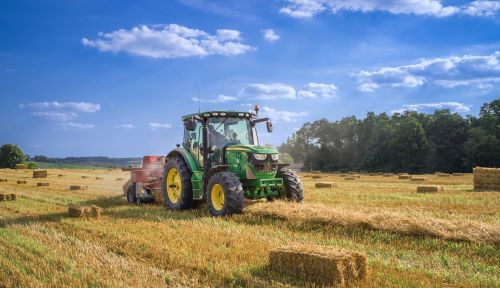
30 June 2023
Defra has unveiled new measures to address the issue of carbon emissions from peatland soils and enhance resilience to drought. These measures come in response to the recommendations from the Chair of the Lowland Agricultural Peat Task Force. Over £7.5 million in funding will be allocated to innovative water management projects aimed at mitigating climate change impacts.
A new report highlights the need for an annual investment of at least £4.4 billion in agri-environment schemes. The report by the RSPB, the National Trust and the Wildlife Trusts advocates for urgent investment in sustainable farming systems to achieve the UK's net zero greenhouse gas emissions target, reverse nature declines and improve air and water quality.
The Energy and Climate Intelligence Unit (ECIU) warns that England's progress in decarbonizing farming is leaving the sector trailing behind others in achieving the net-zero target by 2050. Key indicators such as woodland creation, peatland restoration, and uptake of low carbon farming practices show slow progress or even regression.
New conditions for farming support payments in Scotland, starting from 2025, will include soil testing as part of a comprehensive Whole Farm Plan. Mairi Gougeon, Scotland’s Rural Affairs Secretary highlighted these conditions at the Royal Highland Show. The conditions aim to assist farmers and crofters promote sustainable agriculture while maintaining food production.
Natural Resources Wales has classified Wales as being under "prolonged dry weather" status due to concerns about the impact on rivers, groundwater levels, and the overall environment. The agency attributes this condition to climate change, with lower-than-expected rainfall leading to low river flows, reservoir levels, and drying of land and soils.
Scientists have developed a new model to understand how changes in soil moisture and temperature affect carbon release from soils. It suggests that global heterotrophic respiration, a key process in carbon release where soil organisms like fungi break down matter such as dead-leaves, has been increasing by about 2% per decade since the 1980s.
This week the regenerative agriculture-focused event, Groundswell, is taking place. It aims to address industry questions and promote open discussions and shared experiences, focusing on topics such as soil health, agroforestry, landscape recovery, pest management, and government policies. Key discussions include the potential certification of regenerative agriculture.